Filter by
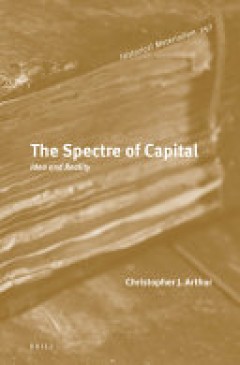
The spectre of capital : idea and reality
What is money? What is capital? The Spectre of Capital tackles such fundamental questions at a deep philosophical level. It argues that the modern world is ruled by a ‘spectre’, the spectre of capital. This insight is rooted in an original combination of the ideas of Marx and Hegel. It presents the most sophisticated argument to date for ‘the homology thesis’, namely that the order of H…
- Edition
- -
- ISBN/ISSN
- 9789004515178
- Collation
- 462 hlm
- Series Title
- -
- Call Number
- 335.41
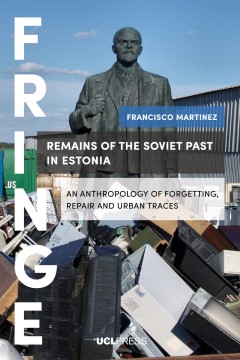
Remains of the Soviet past in Estonia : an anthropology of forgetting, repair…
What happens to legacies that do not find any continuation? In Estonia, a new generation that does not remember the socialist era and is open to global influences has grown up. As a result, the impact of the Soviet memory in people’s conventional values is losing its effective power, opening new opportunities for repair and revaluation of the past. Francisco Martinez brings together a numb…
- Edition
- -
- ISBN/ISSN
- 9781787353534
- Collation
- xix, 255 p. ill;
- Series Title
- -
- Call Number
- 974.98 REM F
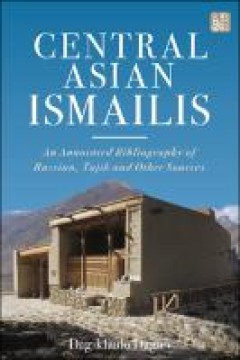
Central Asian Ismailis : an annotated bibliography of Russian, Tajik and othe…
The Shi’i Ismaili Muslims of Central Asia have a complex political history. This open access book is the first English-language study of the Ismaili Muslims in this region, based on analysis of the Russian, Soviet and post-Soviet scholarship about them. It sheds new light on their history and heritage, and also shows how the Ismailis of Central Asia have been understood and presented in the a…
- Edition
- 8
- ISBN/ISSN
- 9780755644988
- Collation
- xxvi, 304p.; ill.
- Series Title
- -
- Call Number
- 297.822 CEN d
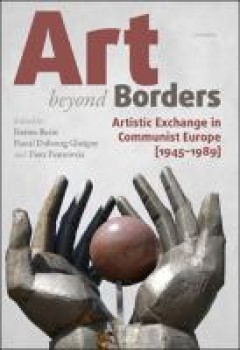
Art beyond borders: artistic exchange in communist Europe (1945–1989)
"This book presents and analyzes artistic interactions both within the Soviet bloc and with the West between 1945 and 1989. During the Cold War the exchange of artistic ideas and products united Europe’s avant-garde in a most remarkable way. Despite the Iron Curtain and national and political borders there existed a constant flow of artists, artworks, artistic ideas and practices. The geograp…
- Edition
- -
- ISBN/ISSN
- 9789633860847
- Collation
- 530 p.: black and white, ill.
- Series Title
- -
- Call Number
- 701.03 BAZ a
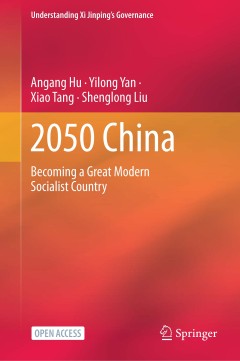
2050 China : becoming a great modern socialist country
This book is arranged and developed around the theme of “2050 China,” it analyzes the factors and advantages of the Chinese road to socialist modernization, explores and summarizes the development goal and the basic logic of the socialist modernization of China, and further shows the general basis of the primary stage of socialism. According to the report delivered at the 19th Party Congres…
- Edition
- -
- ISBN/ISSN
- 9789811598333
- Collation
- vi, 105p. : ill.
- Series Title
- -
- Call Number
- 320.95 TWO t
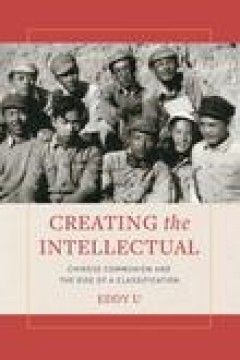
Creating the intellectual : Chinese communism and the rise of a classification
This book offers a new analysis of the intellectual and the Chinese socialist revolution. Under the Chinese Communist Party, the intellectual was never simply an outspoken scholar, a browbeaten artist, a supportive official, or any kind of person facing an increasingly powerful political regime. The intellectual was first and foremost a widening classification of people based on Marxist thought…
- Edition
- -
- ISBN/ISSN
- 9780520972827
- Collation
- XI, 226 p.
- Series Title
- -
- Call Number
- 305.55095109045 UED
 Computer Science, Information & General Works
Computer Science, Information & General Works  Philosophy & Psychology
Philosophy & Psychology  Religion
Religion  Social Sciences
Social Sciences  Language
Language  Pure Science
Pure Science  Applied Sciences
Applied Sciences  Art & Recreation
Art & Recreation  Literature
Literature  History & Geography
History & Geography